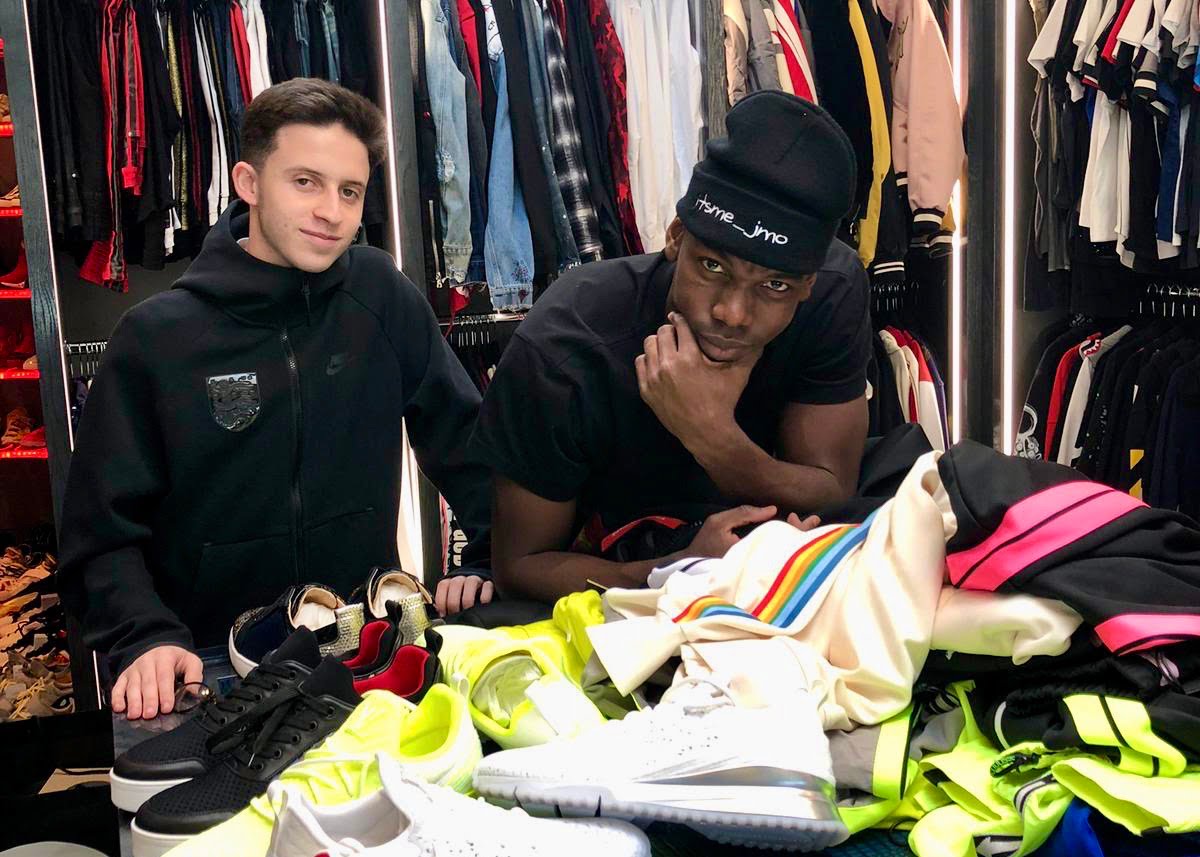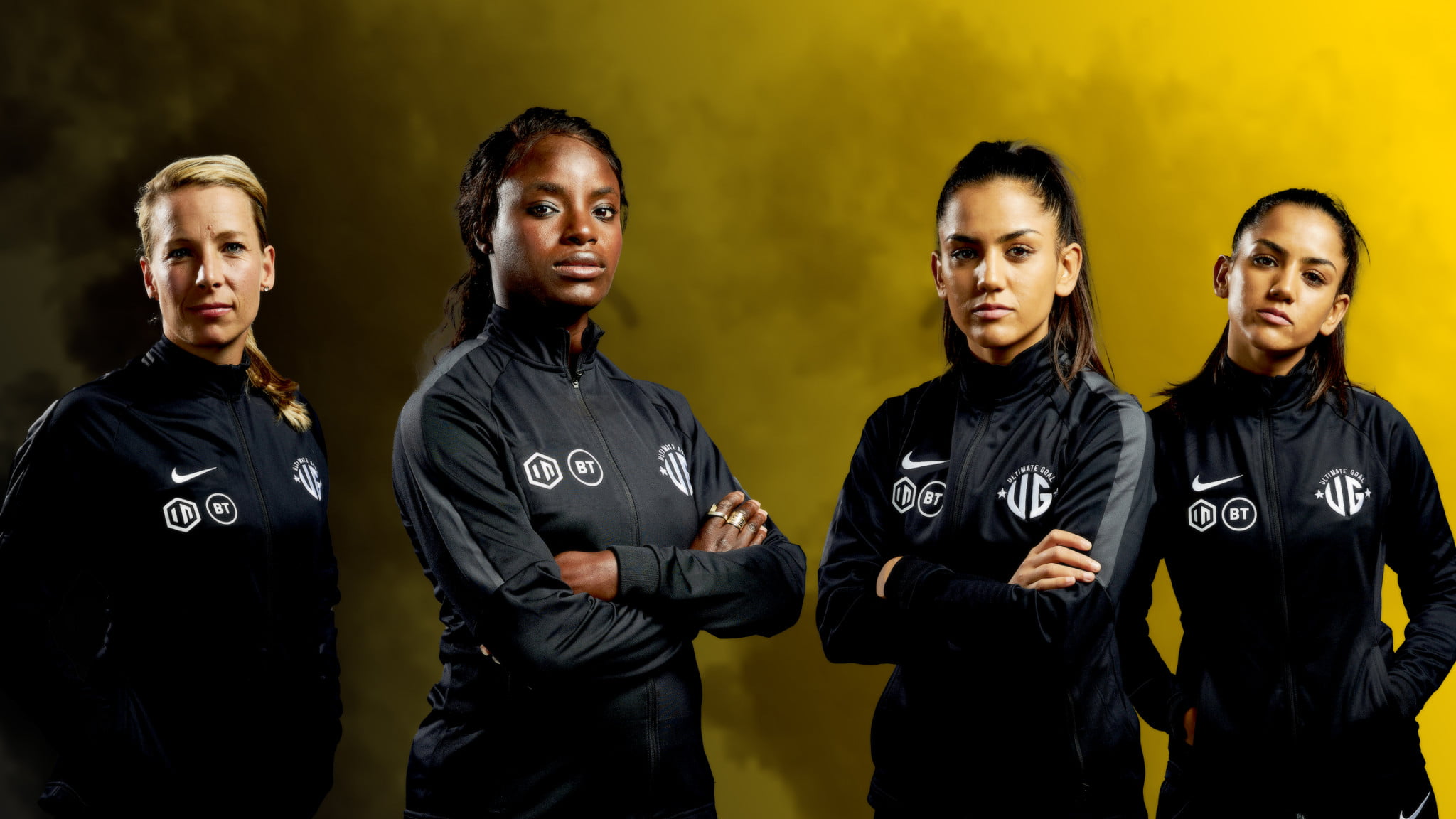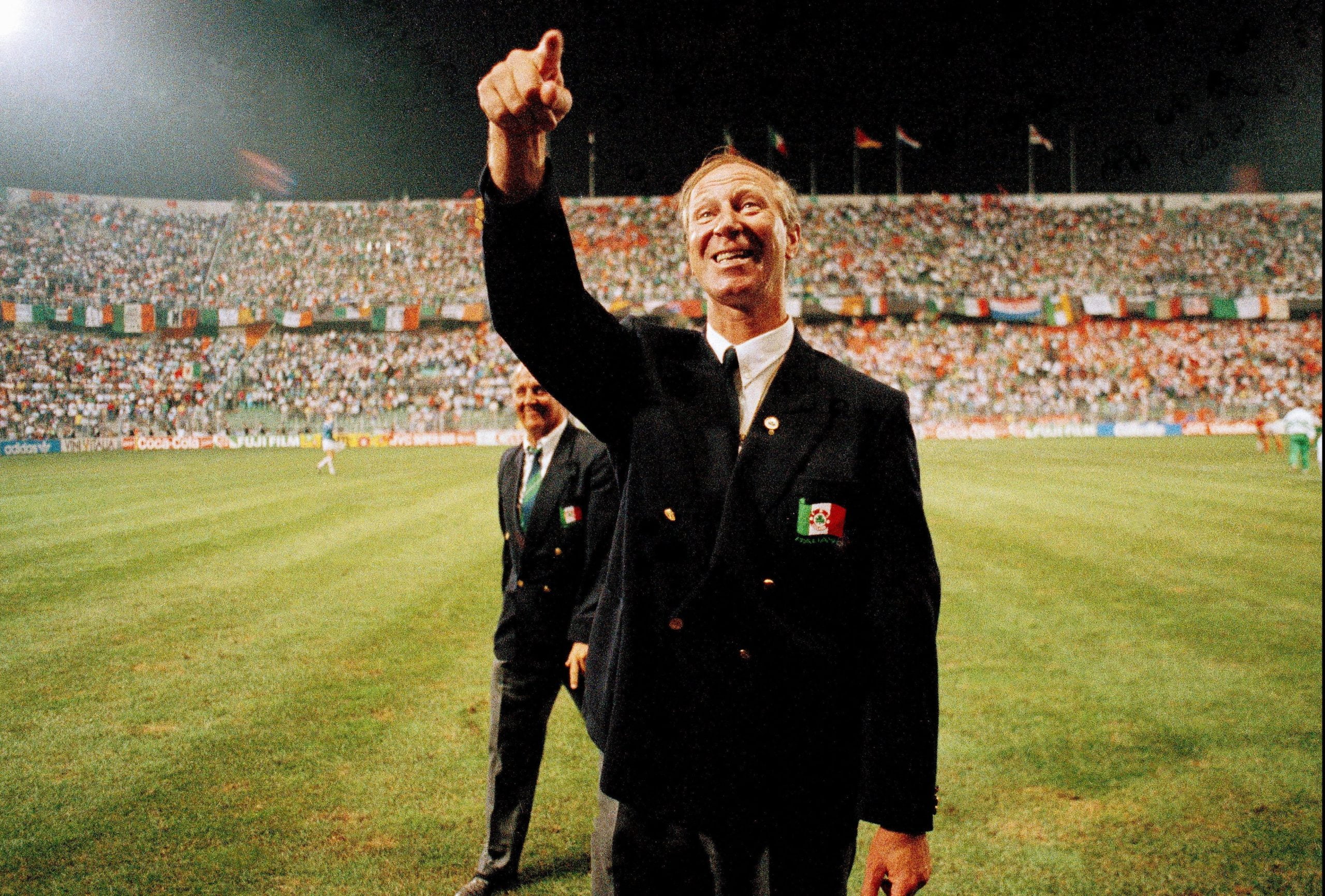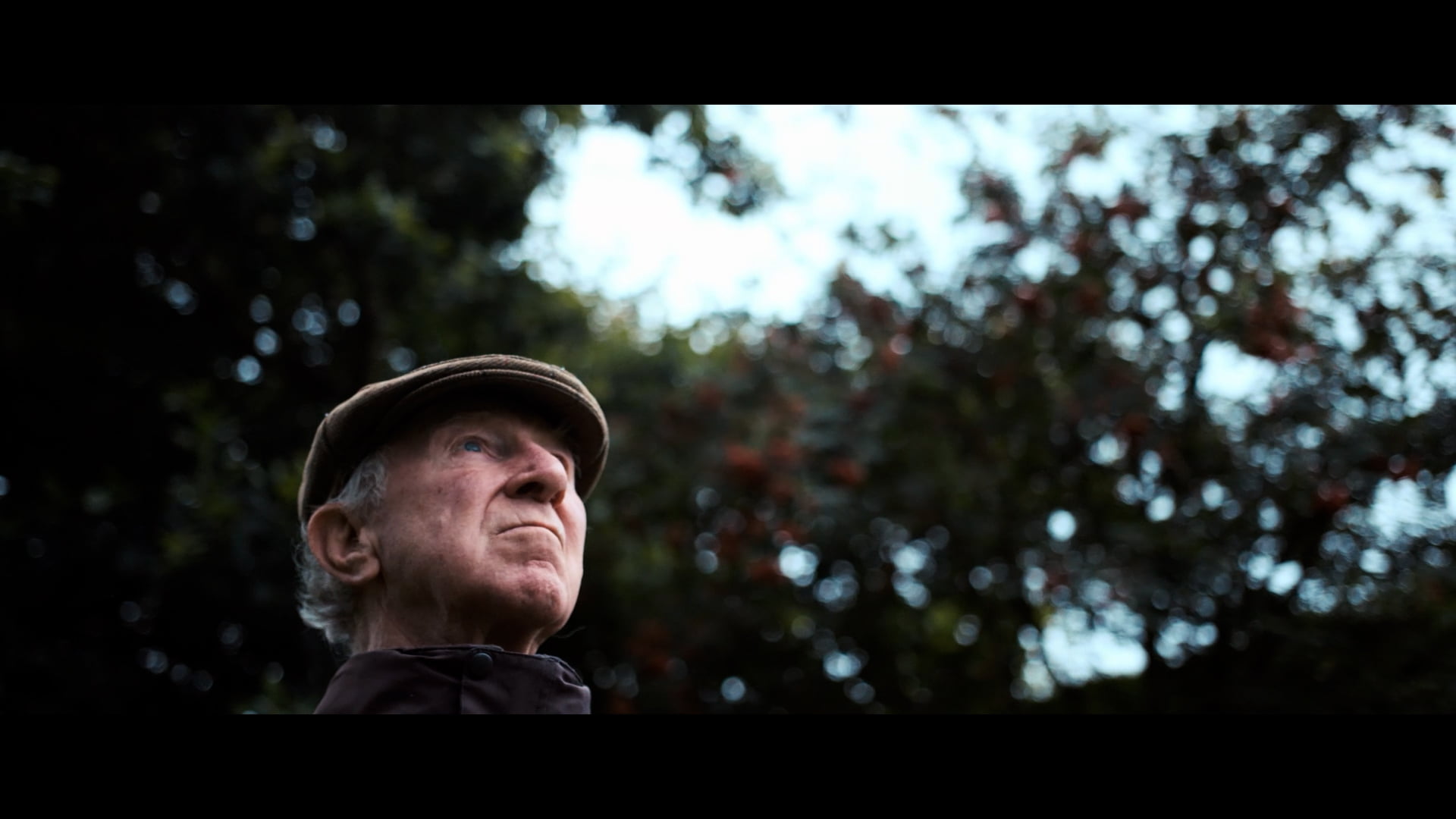Theme Festival - Sports Television

Sports documentaries have proved to be big business for streamers, with linear channels now in hot pursuit of their own. But does the genre’s proliferation dilute quality and editorial standards?
With the global fascination with sports and a growing audience enthusiasm for documentaries, it’s little surprise the content industry has put those two hands together, nor that it’s the streamers leading the way.
US tech giant Amazon has been a particularly prolific commissioner for its global Prime Video streaming service. Premier League football team Arsenal were recently confirmed as the latest focus of its observational documentary series All Or Nothing, following North London rivals Spurs, fellow Premier League side Man City, Italian giants Juventus and Germany’s Borussia Dortmund into that strand, which began with the NFL in the US and is also set to expand into the NHL with a series on the Toronto Maple Leafs.
Amazon has also taken to acquiring similar series, including two seasons of Eleven Sports’ football doc Take Me Home: Leeds United, plus Where Eagles Dare, which charts Crystal Palace’s rise from near bankruptcy to the Premier League. German footballer Bastian Schweinsteiger, Tottenham Hotspur and Korea forward Son Heung-Min, Liverpool midfield legend Steven Gerrard and F1 driver Fabio Alonso are among the individual sports stars to have had docs commissioned in their name.
It’s by no means just an Amazon phenomenon, though. Former England football captain David Beckham has teamed up with rival streamer Disney+ for mentoring series Save Our Squad. The former Manchester United man has also launched his own production company, Studio 99, which is behind forthcoming BBC2 docuseries Fever Pitch! The Rise of the Premier League, which is being distributed by All3Media International.

Sticking with former England footballers, Leicester City striker Jamie Vardy has also seen the value of building his brand through content, fronting talent search The Next Jamie Vardy for Sky and Zig Zag Productions. The latter also recently worked on Ultimate Goal, which hunts for the next female football star, for BT Sport in the UK and Insight TV in the Netherlands. The Garms Dealer, Zig Zag’s latest project, for Channel 4 and Insight, focuses on a personal shopper who works with football stars.
This trend isn’t necessarily new, particularly in the US, where ESPN long ago recognised sports fans’ appetite for factual content with its 30 for 30 feature doc strand. The sportscaster was behind true crime/sports crossover OJ: Made in America and also teamed with Netflix on one of the breakout hits of the global lockdown, Chicago Bulls/Michael Jordan docuseries The Last Dance.
But it is particularly prevalent across Europe right now. Some of the reasons for this are obvious. There is huge audience demand for both sports and documentaries at the moment, particularly on streamers and pay TV services. Sports often conjure some of the most compelling stories and narratives, which can drive great films and series. And, put frankly, your docuseries doesn’t even need to be that good if it features a club with millions of global supporters like Juventus or Arsenal – that enormous captive audience is going to tune in anyway, as are curious fans of other clubs. It’s an easy subscription win for a Netflix or Amazon.
Danny Goldman, MD of UK-based consultancy Goldbridge Media, says there are other, perhaps less cynical, driving factors behind the trend.

“The genre works because sport has a scale and purity of emotions that other genres find hard to match,” he says. “The passions wrapped up in sport are mesmerising live, but also in the documentary format. In some cases, the stakes can be life or death, as captured in ESPN’s The Two Escobars or in Senna. And as legendary Liverpool FC manager Bill Shankly once remarked, sometimes it is more important than that. When you watch What’s My Name: Muhammad Ali, you feel the weight of the Civil Rights struggle, the anti-Vietnam War movement and the whole American power structure on the shoulders of one man.
“From a TV business perspective, another crucial factor in the rise of the sports doc is the ability of sport to act as a vehicle for global storytelling, which has become a key component of the modern TV landscape. Social media and digital connectivity have turned provincial stars into global icons. That increasingly dovetails with the international programming strategies of the streaming services. In recent weeks, we have seen the launch of Sky Documentaries in Germany to complement the UK and Italian versions of the channel. Documentaries are a key battleground for viewer/subscriber retention.
“Alongside these dedicated documentary channels and branded documentary programming strands, media companies like Sky, ESPN and Showtime have invested billions into live sports rights over the years for subscriber-acquisition purposes. But as the market for live rights has become increasingly inflated, coverage of live sport has become more fragmented, and a single broadcaster can no longer dominate coverage in any major market in the way they could in the past.
“As a result, those broadcasters are using docs to continue to give their audience a reason to return to the service in between live sports coverage, a phenomenon that was exacerbated by the Covid-19 pandemic that put so much live sport on hold. It was no surprise that ESPN pushed so hard for the accelerated release of The Last Dance in the US, for example.”
Get one of these sports docs right and they’ll still be talking about you in 30 years’ time. Graham Taylor: An Impossible Job, produced by Ken McGill, written by Patrick Collins, and made by Chrysalis for Channel 4’s Cutting Edge strand in 1994, is arguably one of the genres all-time high points. Granted fly-on-the-wall access to what the English Football Association hoped/presumed would be a successful qualifying campaign for the World Cup in the US, the filmmakers actually captured the unravelling of the team, and its manager, set to a backdrop of rampant hooliganism and a hostile, unforgiving British press. Taylor’s “do I not like that” catchphrase is one of several from that film that have become part of everyday football lexicon, even in 2021.

John McKenna is CEO and co-founder of London-based indie Noah Media, which was behind Bobby Robson: More Than a Manager for Netflix, Finding Jack Charlton for BBC2 and Out of Their Skin for ITV, among others. These are sports docs on the face of it but, like the Impossible Job, they deal with other themes too, such as illness, dementia and racism.
“There is a big appetite for this content, which is great for us, there are a load of different stories you could potentially tell, but there are certain questions we ask ourselves before we take on a project,” McKenna says.
“The fundamental is a good, dramatic, sporting arc leading to a big moment of jeopardy, exhilaration or disappointment. But we also always look for a human story off the pitch that a wider audience than just a sport audience can relate to. That’s vital. Finding Jack Charlton had a couple of stories alongside his Ireland reign: him and his brother Bobby; and him and his family living with his dementia. We want more than just what happened in the sporting arena.
“On top of that, can you weave in narratives and keep people hooked in more than one way? Is there jeopardy? Are you bringing something new? What is your film breaking or revealing? What’s new for the audience here? It has to have all of that for it to be a good sports doc, and if it’s missing any of that then I would argue it’s possibly not at the right level.”
Adam Neuhaus, senior director of development at ESPN, says the best way to pitch the 30 for 30 strand is to start with “What if I told you…”

“That is the catchphrase for 30 for 30. It speaks to the perspective we’re looking for in our films – tell me a story,” he says. “We’re not looking to do a film because it’s a famous person or event. We want to tell stories that are about something greater, beyond who won the game or what the score was. An ideal scenario is a film that is watched by people who are not sports fans. It’s an invitation to tell a story that goes beyond sport and athleticism and gets into the heart of a human story.
“We like to focus on a single event. We won’t do a film on goalkeepers, or a series where every episode is a different story. We would rather look at a film on a single story and, through that story, illuminate larger themes. Use sports as a context for bigger human themes. What is your story really about? We want a new angle on a story you thought you knew. What I like in a pitch is, ‘Here’s this story you thought you knew, but actually there’s a whole other angle.’ It doesn’t have to be something that moved the world; it can be something that moved a sport, or a family. It just needs to have a theme and impact beyond sport.”
Different narratives are also key to Adam Hopkins. He’s executive producing BBC2’s Fever Pitch for Story Films, which is working with Studio 99 on the football-focused project, and says it was more than just the goals and the talking heads that drew the company to the idea.
“On the doc side, Story Films has a reputation for trying to produce a definitive version of a documentary on any particular subject, taking the temperature of Britain,” he says. “We were looking at what we could do from 20 or 30 years ago that could be a window on the world now where the seeds of change, globalisation and commercialisation were sown. The Premier League is now the most watched league in the world, but it started in 1992 as an unproven breakaway and a risky venture on the back of football not being very popular, well invested in, well marketed or well looked after during the 1980s. It’s now obvious that sport and business go hand in hand, but that wasn’t always the case.
“Footballers have also become really important in the national consciousness and culture. They’re part of the age of celebrity, which gives you a chance to explore other things like masculinity, race, sexuality and identity. Our stories have inherent drama on the pitch, which is useful and memorable, and we can retell them but with a documentary sensibility, so now we look back on this, what does it mean, what was this the seeds of?”
“The Impossible Job probably set access docs in this field back about 25 years because every time you tried to get into a football club, they’d fear you were going to make them look stupid,” says Zig Zag CEO Danny Fenton. “’Do I not like that’ probably set Graham Taylor’s career back a lot as well. It made clubs and individuals very risk-averse. I know the English Football Association and [national team manager] Gareth Southgate had numerous approaches about doing a fly-on-the-wall with England during Euro 2020, which would have been fantastic viewing and would have ended up being a really positive thing, but the risk you take is you film and they [exit the competition early].”
Those fears have, perhaps, been tempered by the large fees the likes of Amazon have paid clubs for access, at a time when crowds have been locked out for more than a year by the pandemic, putting huge dents in income, gate receipts and corporate revenue. But does that make for a good documentary?
“The best football access docs, for me, are things like Sunderland ‘Til I Die [Netflix] and The Four Year Plan [BBC2] because they have unfettered access and they start out being one thing and then, through longitude of filming, they evolve into something else,” Fenton says.
“Sunderland ‘Til I Die was made by Fulwell73, they’re Sunderland fans, they named their company after a stand at their old ground and the year they won the cup, and that was originally planned as a doc about a triumphant return to the Premier League. Instead, it turned into a demise into League One and, in fact, that was a brilliant story,”
“My view is that some of the obs docs can feel quite sanitised. The nature of the deals means there are substantial fees paid to the club for the access, and they then put stringent restrictions on that filming. You can feel the hand of the producer quite close to the ones around the big clubs – Spurs and Man City. Juventus, in particular, felt like a club corporate video.
“It is important to have a broadcaster and a recognised external producer to give you a dispassionate viewpoint. Where it’s murky or muddy is the Leeds or the Crystal Palace ones where the club themselves fund a documentary with no broadcaster on board at the beginning and then they sell it to a broadcaster at the end. You don’t have that dispassionate editorial point of view and it turns into what used to be the end-of-season club video.”
Veteran documentary producer Corey Russell was hired by Canada’s Cream Productions to lead a Cream Films documentary arm last year. He’s since produced Nike’s Big Bet, about the Alberto Salazar scandal in athletics, and is also behind the Toronto Maple Leafs instalment of All Or Nothing, which he’s keen to play with a straight bat.
“You have to be responsible with the access you get,” Russell says. “There are things that happen in private and, when you have this kind of access, you can’t take it for granted and just broadcast everything that happens. There has to be a level of trust. There is full editorial control, but there is stuff you know, through discussions with the team and the league, where you just can’t break that trust.
“They’re allowing cameras in and to roll unconditionally, but there are things at the end of the process you’re not allowed to show, and a lot of that stuff is just common sense that you don’t want to ruin anybody’s career or reputation or paint them in a negative light for a small thing that happened in private. There’s great responsibility.
“For the clubs, I think it’s more about access for and engagement with the fans out of season. For non-fans of the team, it’s an opportunity to see what these guys go through throughout a season, and that’s really interesting. The storylines are fascinating. I’m a sports junkie; I think sport has the best stories. It’s something beyond what you see in the games.
“People are also interested in how the other half lives. These guys are extremely talented, competitive and driven, and they make a lot of money, which is fascinating to us people who consume sport form our couch. It all blends into the fact people are super interested in those worlds and what happens behind closed doors. People are drawn to these series, whether they’re fans or not, because of that.”
But is simply getting access to a professional sports club enough to hang a documentary on? Are we going to get to a point where every Premier League club has had its own version? And can we look forward to All Or Nothing: Grimsby Town in the not too distant future?
Hopkins at Story Films says: “The space is so big now for sport docs that if Liverpool FC are giving access for a season, somebody will definitely buy that because that’s current and of interest and feels premium. With our project, it requires something more than sport. It’s easy to find out what happened – a lot of the matches are on YouTube, you can see what the sporting narrative was – but it requires a mixture of presenting this from a historical point of view, research and telling stories in an engaging way so that it’s business, cultural and social history and it feels like it’s pointing to where we’re at now.”
Director Mat Hodgson, co-founder of London indie Ad Hoc Films, got his big break with The Four Year Plan, a feature obs doc that started off as the story of three of the world’s richest men (Flavio Briatore, Bernie Ecclestone and Lakshmi Mittal) buying one of Britain’s most destitute football clubs (Queens Park Rangers) to lead it back to the big time during a global financial crisis, only for the whole thing to blow up in their faces in an at times farcical comedy. Hodgson has since gone on to produce boxing docs Night of the Fight: Hatton’s Last Stand and I Am Durán, and another football doc The United Way, which was picked up by Sky Documentaries.
“You should never come at a documentary from a purpose of, ‘This thing exists so let’s capture it,’” Hodgson says. “What framework exists around it, or ecosystem within it? That’s what you’re looking for. Impossible Job was more than a fly-on-the-wall doc about England; it said things about our press, expectation, pressure. The Four Year Plan was about ownership of football clubs, community treasures and hubs being taken in different directions by rich people. It wasn’t just, ‘Let’s land the cameras at QPR for four years and see what happens’ – there’s a reason we chose that story and felt there was something emerging there.
“Now I’m confused over where it’s going. Access has been so trumpeted as everything, but it’s not enough on its own. Access as a silver bullet doesn’t necessarily get what we need in the long run. We get pitched a lot, and we’re not the only ones, but we often turn away potential projects because there isn’t a hook or unique angle. It’s not enough to say, ‘I play in the Premier League, I’m opening my doors, you’re going to make a doc on me.’ Ten years ago, people would bite your hand off for that. The shift in the landscape isn’t just the proliferation of docs generally, you have to ask if there is something unique, special and a hook to this.”
For McKenna, access is just one ingredient necessary for a great project in this field. “It depends what film you want to make,” he explains. “The access is ingredient number one, but ingredient number two is the story. It comes back to breaking something new – what is it we’re showing that people don’t know? What’s your angle into it? For the films we’ve made to date, and what we’re making at the moment, access alone is not enough. It needs to have a really original route into that story. What’s your access, and then what’s the story?”
Fenton picks up: “I got contacted by a French club, not one of the top ones, offering all access, assuming everybody would want to pay them because everybody heard about the money Man City and Spurs got. We are reaching fatigue point – how many football obs docs are people going to want to see?
“One thing we take for granted in the UK is the power of the Premier League internationally. The Leeds doc sells really well, I suspect the Palace one will as well, and there are 180 territories taking the BBC2 Premier League doc from All3Media. For Premier League clubs there is maybe more potential.
“Personally, I would be interested in a Norwich or a Brentford, a promoted club, particularly coming into the Premier League for the first time. But then we got access a few years ago to Huddersfield after they’d been promoted, and we took that out to market and found no takers. It’s not a guarantee that access to a club will see somebody buy it, but I do think Premier League clubs have more currency than say French or German clubs.”
So where could this genre go next? More and more obs docs with more and more clubs and individuals? And is buyer hunger for this content a double-edged sword for producers – additional places to sell to, but extra competition and clutter to cut through?
“There are more and more docs around sport and, as long as there are really good ones landing regularly, the genre will stay relevant and keep growing,” McKenna says. “The danger is, if there’s a proliferation of sports docs that are not as good, people might become tired of them. All we can do is make sure every one we make is of the right standard.
“Streamers are having success with them, kicked off probably by Senna, which made people realise you can tell sports stories in a brilliant way, and then The Last Dance did incredibly well. That’s led others like the BBC and iPlayer, and now Apple TV+ and Discovery+, coming in. There are many potential buyers, so the genre is hopefully here to stay, and we have to make sure our contribution to it is at the top end.”
“It’s definitely a double-edged sword,” says Russell at Cream. “It’s great news there are more opportunities for sport docs because, for the longest time, there was only a handful of places to take a good sports idea. I think also it’s good because, on the other side, people see how successful these docs have been and there’s more opportunity to approach teams, leagues, individual athletes to do docs about them and they’re more open to it now.
“The access docs will continue. You’ll see more individual access docs – instead of following a team, you’ll follow a player and their personal ups and downs. One thing I do hope comes back around is historical docs. There are fewer of those at the moment, but there are some great historical sports stories I’d love to see docs on. They hang on the ability to acquire personal archives. When I talk to people, I say go back in your personal archive, look for stuff that nobody has ever seen before outside your personal circle, and we can use that. We are developing projects that have unique archive like that, which we’re excited about.”
Hodgson believes there’s some mileage to go in the multi-part obs docs at clubs, regardless of whether that’s a good thing.
“The top six clubs in the UK will all have one; we’re nearly there already,” he says. “The streamers will look at it as fanbase first and story second – though Sunderland was maybe an exception. Individuals may be next – a manager will get one – but the well will run dry eventually. That profession alone isn’t as much of a hook, in my opinion. The beauty of the way it used to be is because they were so rare and few and far between, they were moments that captured zeitgeists of an era. Now they don’t because they’re quick turnaround, the landscape is all over the place, we’re not defining an era through the ubiquitous film.
“The Four Year Plan, if it was made now, wouldn’t be a film. We’d have been told to spin it into a series. Is that a good thing or a bad thing? I could have made it as eight parts and it would still have been entertaining, it would have made us more money, but I’m not sure. The Four Year Plan was a one-off filmed over a long time; now they’re filmed over a shorter period of time and it’s longer content. That says a lot.”